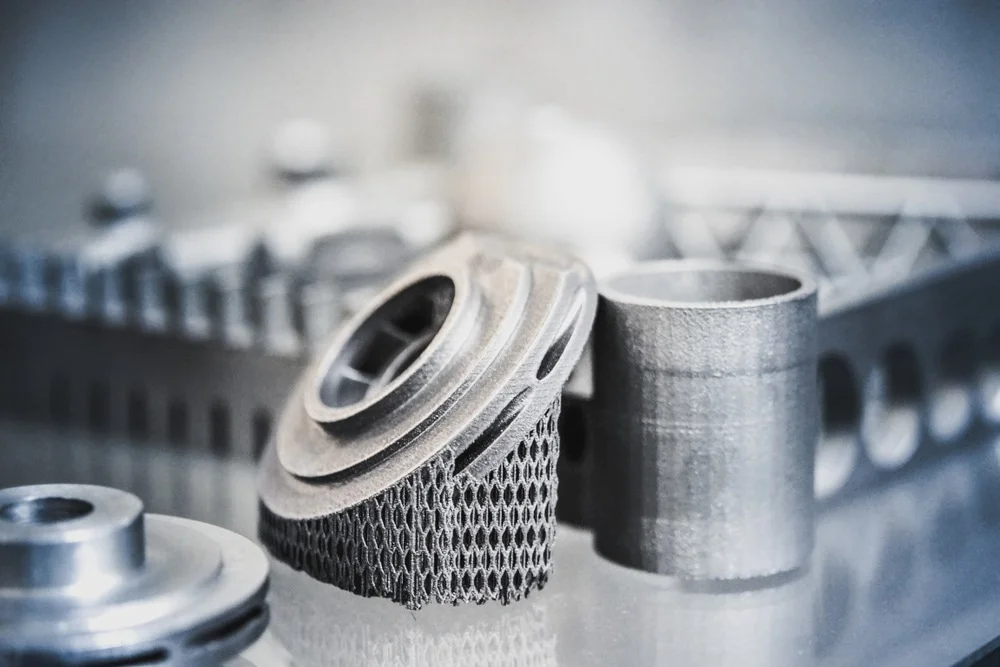ASTM E793 Enthalpy and Heat Capacity of High Temp Alloys
The ASTM E793 test method is a critical tool in materials science for assessing the thermodynamic properties of high-temperature alloys. This service focuses on determining the enthalpy (H) and heat capacity (CP) of these materials, which are essential for understanding their performance under extreme conditions.
Thermodynamic properties play a crucial role in predicting how materials behave at elevated temperatures. Enthalpy is the total heat content within a system, while heat capacity measures the amount of energy required to raise the temperature by one degree Celsius. For high-temperature alloys used in aerospace, power generation, and other demanding industries, accurate determination of these properties ensures that materials will withstand operational stresses without compromising safety or performance.
The ASTM E793 test involves heating a specimen at a controlled rate while simultaneously measuring the temperature rise and the corresponding heat input. The resulting data is used to calculate enthalpy and heat capacity using specific formulas derived from thermodynamics principles. This method allows for precise measurement even under high-temperature conditions where traditional calorimetry techniques may falter.
High-temperature alloys are often subjected to cyclic loading or exposure to corrosive environments, making it vital to understand their response to thermal cycling and environmental stress. By accurately measuring enthalpy and heat capacity, engineers can optimize material selection for specific applications, ensuring longevity and reliability of components.
The ASTM E793 test is particularly useful in research and development (R&D) environments where new alloy formulations are being evaluated or existing materials need to be characterized under different conditions. Quality managers rely on these data points to ensure compliance with industry standards and specifications, while procurement teams use them as a basis for vendor evaluation.
Understanding the thermodynamic properties of high-temperature alloys is not just academic; it has real-world implications. In aerospace applications, for instance, selecting materials based on accurate enthalpy and heat capacity data can lead to lighter, more efficient engines that consume less fuel while maintaining structural integrity. Similarly, in power generation, optimizing these parameters helps reduce maintenance costs by extending component lifetimes.
The ASTM E793 test is an indispensable tool for ensuring the quality and reliability of high-temperature alloys used across various sectors. Its application extends beyond mere compliance; it enables innovation by providing insights into material behavior under extreme conditions, thereby driving advancements in technology and engineering practices.
Why It Matters
- Enhanced Reliability: Accurate enthalpy and heat capacity data improve the reliability of materials under extreme conditions, reducing the risk of failures in critical applications.
- Cost Reduction: By selecting appropriate materials based on these properties, industries can minimize maintenance costs and extend component lifetimes, leading to significant financial savings over time.
- Innovation: Understanding material behavior under various conditions fosters innovation in alloy development and application-specific design.
- Safety: Ensuring that materials meet stringent thermodynamic requirements enhances the safety of products used in high-stress environments.
Scope and Methodology
| Parameter | Description |
|---|---|
| Test Specimen: | A representative sample of the high-temperature alloy to be tested. |
| Temperature Range: | The test is conducted over a range from ambient temperature up to 1000°C (or higher, depending on material specifications). |
| Heating Rate: | A controlled heating rate of approximately 5°C/minute. |
| Data Collection: | Continuous monitoring of the specimen's temperature and the corresponding heat input. |
Customer Impact and Satisfaction
- Quality Assurance: Compliance with industry standards such as ASTM E793 ensures that materials meet the highest quality benchmarks.
- Purchasing Decisions: Accurate data from this test helps procurement teams make informed decisions about material sourcing, ensuring consistency and reliability.
- R&D Insights: The insights gained from ASTM E793 testing can significantly influence the direction of R&D projects, leading to more effective product designs.
- Customer Trust: Providing accurate data builds trust with customers who rely on these materials for critical applications.





